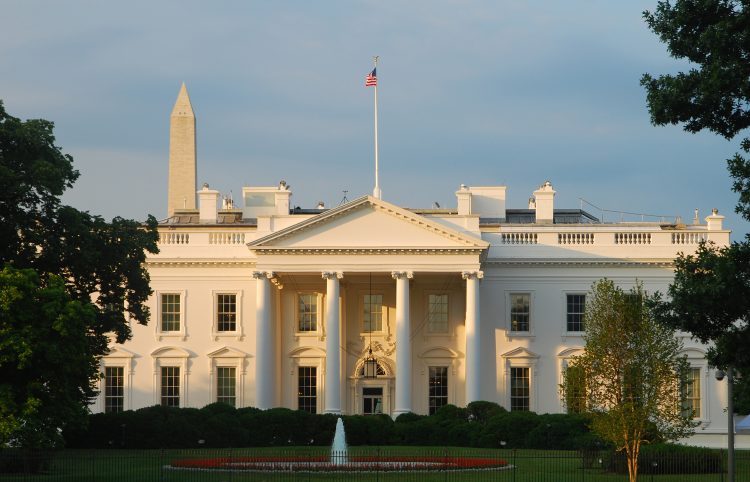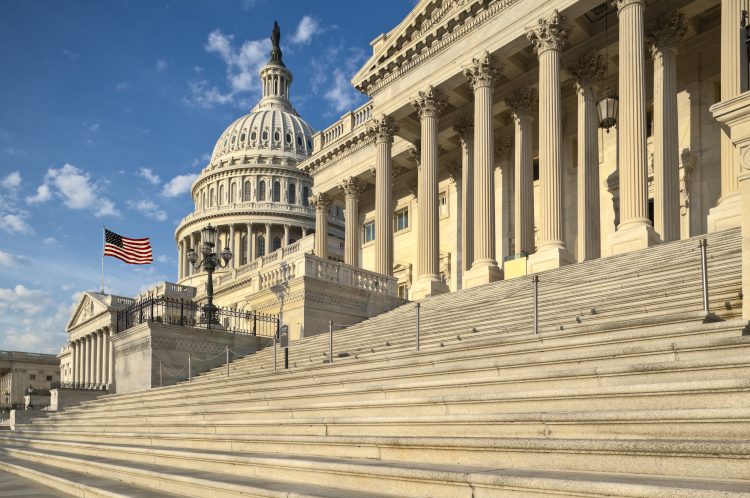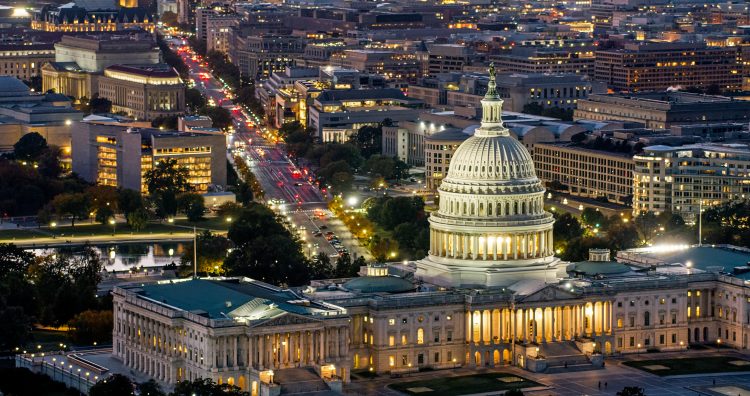This week on Facing the Future, we revisited the issue of immigration that nearly all economists agree will have an enormous impact on both economic growth and the federal budget over the next 30 years. With declining birth rates in the United States and a rapidly aging population, immigration will be key to sustaining the working age population and productivity. We were lucky to be joined for our program by a noted scholar on the issue, Theresa Cardinal Brown of the Bipartisan Policy Center. Theresa is managing director of immigration and cross border policy for BPC and has a wealth of experience on immigration.
Among other roles, Brown was a customs and border protection policy advisor at the U.S. Department of Homeland Security during the presidential administration of George W. Bush. She has also headed immigration and border policy for the National Chamber of Commerce and oversaw business immigration advocacy at the American Immigration Lawyers Association. Concord Coalition communications director Av Harris joined me for that conversation.
Then later in the program Concord’s chief economist Steve Robinson joined me to discuss his latest issue brief looking at the income-based repayment part of the Biden administration’s student loan forgiveness proposal. Steve’s analysis shows how the Biden plan is transforming the federal student loan program into grants for college education.
It is fair to say that the United States has a broken immigration system. We have a humanitarian and security crisis along the U.S.-Mexican border, with thousands of migrants fleeing oppressive conditions in Central and South America as well as Asia and Africa, presenting themselves and asking for asylum or refugee status. At the same time, the legal immigration system is a mess that has not been significantly updated in almost 60 years, with arbitrary restrictions on skilled immigrant visas and years-long processing backlogs. The last time that Congress came close to acting on comprehensive immigration reform was 10 years ago during the Obama administration. Brown says despite how politically explosive the issue of immigration can be, pretty much everyone recognizes we need to do something.
“There is a growing number of members of Congress who are seeing in real time the effects of not fixing our immigration system,” said Brown. “There are lots of divisions in the country about what we should do about the border, the undocumented, our legal immigration system, but there is near unanimous agreement that what we’ve got now isn’t working. We’re seeing significant issues with finding workers in key industries. We just passed a really big infrastructure law, and the CHIPS and science act that’s supposed to restart innovation, research and development, and manufacturing in key hi-tech sectors including semiconductors and other technologies. But we also have this disconnect in that the number of people graduating from advanced degree programs in those research fields – a lot of them are immigrants who don’t have a way to stay. We have a big disconnect between the way our immigration system looks right now – which hasn’t really changed fundamentally since 1965 and was last updated in terms of numbers in 1990, and what we think we need for the country.”
For there to be any movement on immigration reform in Congress, Republicans are insisting on a revamp of border security measures to both control the flow of people coming into the United States as well as knowing who is crossing the border. But Brown says we need to completely rethink border security.
“The infrastructure, the processes we have put in place to try to manage migration and secure the U.S.-Mexico border for the last 20 years or more are having a decreasing effect because migration itself at the border has changed,” said Brown. “For most of the 20th century all the way to the beginning part of this century, 90 plus percent of everybody who came to the U.S.-Mexican border to immigrate was Mexican adult single males, and they were trying to evade capture to sneak in to work. And then maybe would work for a while, and then go back. But that’s no longer the case. Now we have significant numbers of families, of unaccompanied children who are not from Mexico. They are from countries as far away as India, Ukraine, and Cameroon as well as all of Latin America. And they’re not trying to evade detection, they are turning themselves in, overwhelming the Border Patrol.”
In other words, what was considered an enforcement challenge in the past trying to catch evading law breakers has really transformed into a legal and a humanitarian problem that requires new systems to be established. Plus, it adds to security risks for the country because chaos at the border creates opportunities for security threats to slip in. There were some serious bipartisan talks between Senators Thom Tillis (R-NC) and Kyrsten Sinema (I-AZ) during the lame-duck session of Congress in December that apparently have continued through the opening of the new Congress. Brown says she is optimistic that real reform can emerge from these talks.
“One of the first bills that Speaker McCarthy tried to bring to the floor of the House was a bill sponsored by Texas Republican Chip Roy on the border,” said Brown. “It was a very restrictive border bill; it would have basically told the Secretary of Homeland Security he would have had to prevent the entry of any immigrants unless he could detain everybody in the United States. It’s a very extreme bill and it’s not clear it would work. We can’t just prevent people from entering the United States, because Mexico doesn’t have to allow us to send anybody back there they don’t want other than their own citizens. But members of his own party from that moderate view including Republican from the Texas border Tony Gonzalez put up his hand and said nope, this is not the way we should be going about it. We need to deal with the border, but it can’t mean completely shutting off asylum. So it seems that even among House Republicans, the Speaker’s going to have to manage negotiations between the parts of his party. That gives an opportunity for Democrats also to work with some of the Republican moderates to address the broader issue.”
For any immigration measure to become law, it will need votes from Democrats in the House and Senate, and will need to be signed by Democratic President Joe Biden.
Hear more on Facing the Future. I host the program each week on WKXL in Concord N.H., and it is also available via podcast. Join our guests as we discuss issues relating to national fiscal policy with budget experts, industry leaders, and elected officials. Past broadcasts are available here. You can subscribe to the podcast on Spotify, Pandora, iTunes, Google Podcasts, Stitcher, or with an RSS feed. Follow Facing the Future on Facebook, and watch videos from past episodes on The Concord Coalition YouTube channel.
Continue Reading










